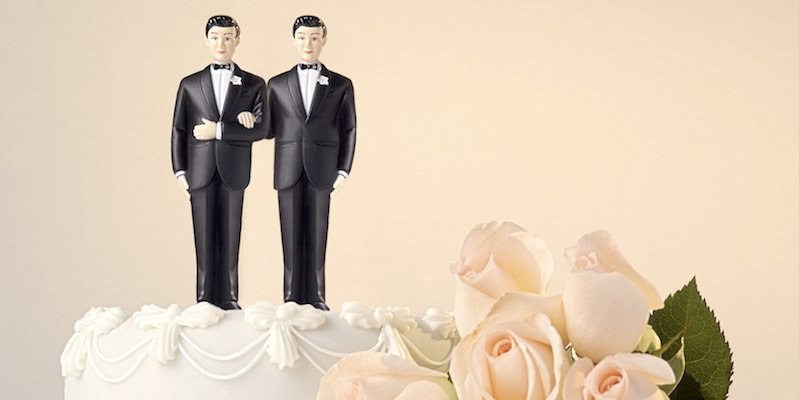40% think not baking a cake for a same-sex couple for religious reasons is discrimination – and another 40% say it’s not
The Supreme Court is wrestling with balancing religious freedom and equal rights in the case of Masterpiece Cakeshop v. Colorado Civil Rights Commission, deciding whether a baker’s First Amendment religious protections permit him to violate Colorado anti-discrimination regulations and refuse to create a wedding cake for a same-sex couple. Americans are torn, too. But on balance, they seem to come down on the side of religion.
On the one hand, the public overwhelmingly supports the Colorado anti-discrimination ordinance, which explicitly mentions sexual orientation. Support for this law is broad-based. Republicans and Democrats favor it, as do those Americans who say religion is very important in their lives.
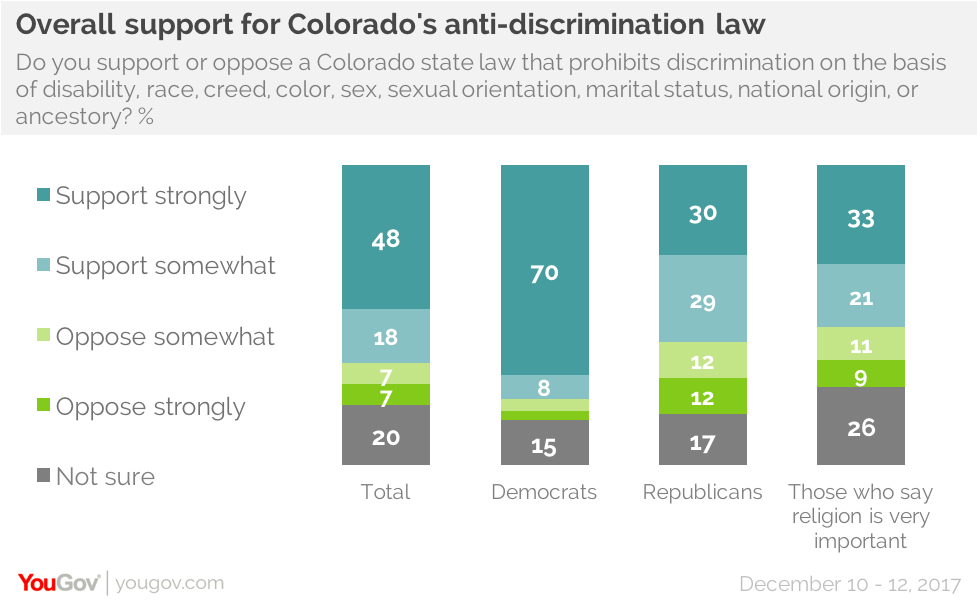
Of course, the language of the law also includes protection against discrimination on the basis of religion.
Americans draw conflicting conclusions about the issues in the court case. Many think making a cake implies nothing at all about whether a baker endorses the views of those who buy that cake. A majority think selling a cake for a same-sex wedding does not indicate endorsement of same-sex marriage. But this is a question where the views of Republicans are different: slightly more Republicans say selling such a cake counts as an endorsement as disagree. And those for whom religion is very important in their own lives also divide evenly.
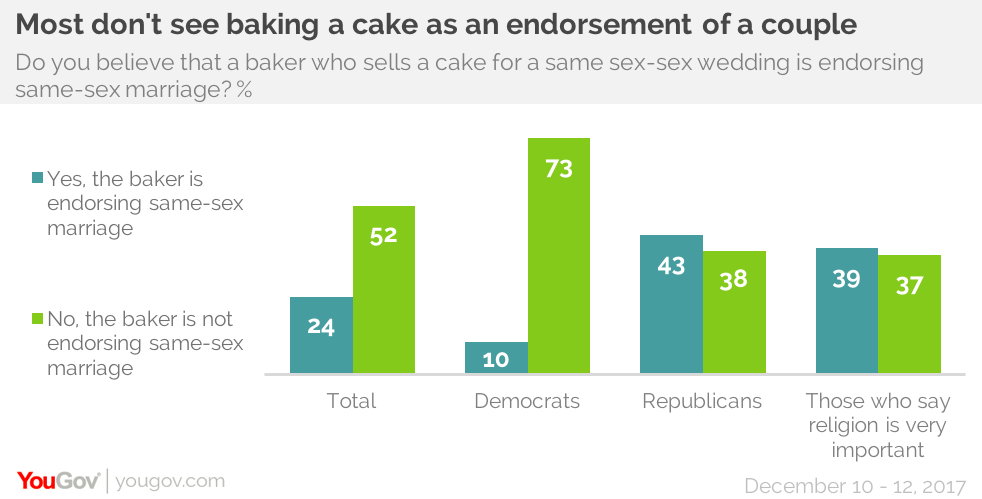
A second distinction is that some Americans don’t find any discrimination in a refusal to sell a wedding cake to a same-sex couple because of a person’s religious beliefs, even though they find discrimination in refusing to sell a cake to an interracial couple when it is due to the seller’s religious beliefs.
As many people say it is not discrimination to refuse to sell a wedding cake on religious grounds to a same-sex couple as think it is. More say it is discrimination to refuse to sell a cake to an interracial couple, even if the seller claims the sale would violate his or her religious beliefs. Republicans see no discrimination in both these situations.
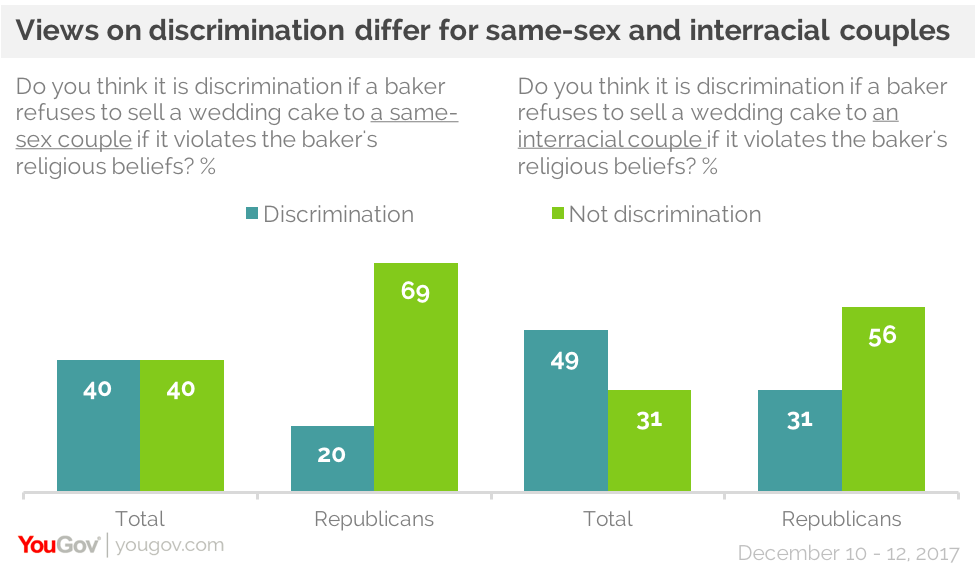
Those who believe baking a cake is an endorsement of same-sex marriage are especially likely to believe that refusing to sell a same-sex couple a cake involves no discrimination.
But the more important distinction, perhaps, may be that a plurality sees a violation of the First Amendments religious freedom protections if someone were to be required to bake a wedding cake for a same-sex couple. That is particularly true for Republicans, 74% of whom say this would violate First Amendment religious freedom. 47% of independents also agree, as do one in five Democrats.
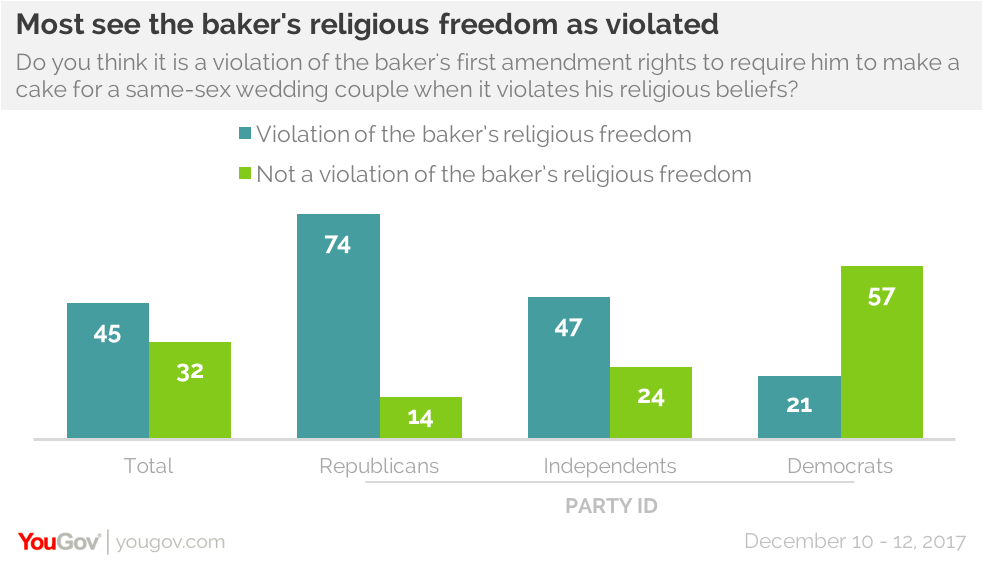
Just 29% of the public say they have heard a lot about the case. [The poll was conducted after the Supreme Court heard oral arguments on the case.] Half have heard a little about the case. Those who are aware are slightly more likely to say religious rights would be violated if someone were forced to bake a wedding cake for a same-sex couple.
So when asked directly towards the end of the questioning who should win, 57% of Americans side with the baker’s religious claims, while 43% would side with the Colorado anti-discrimination laws.
This is a moment when both Republicans and Democrats have favorable opinions about the Supreme Court. But positive opinion about the Court often changes when people disagree with a decision in a controversial case. The decision in Masterpiece Cakeshop v. Colorado Civil Rights Commission will certainly be controversial.
Read the full results and tables here.
Image: Getty
